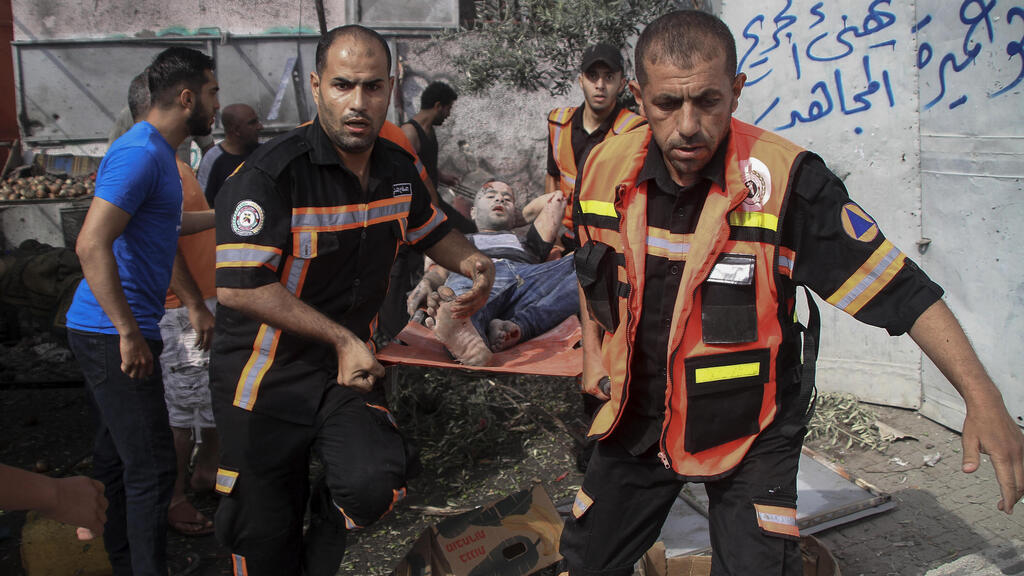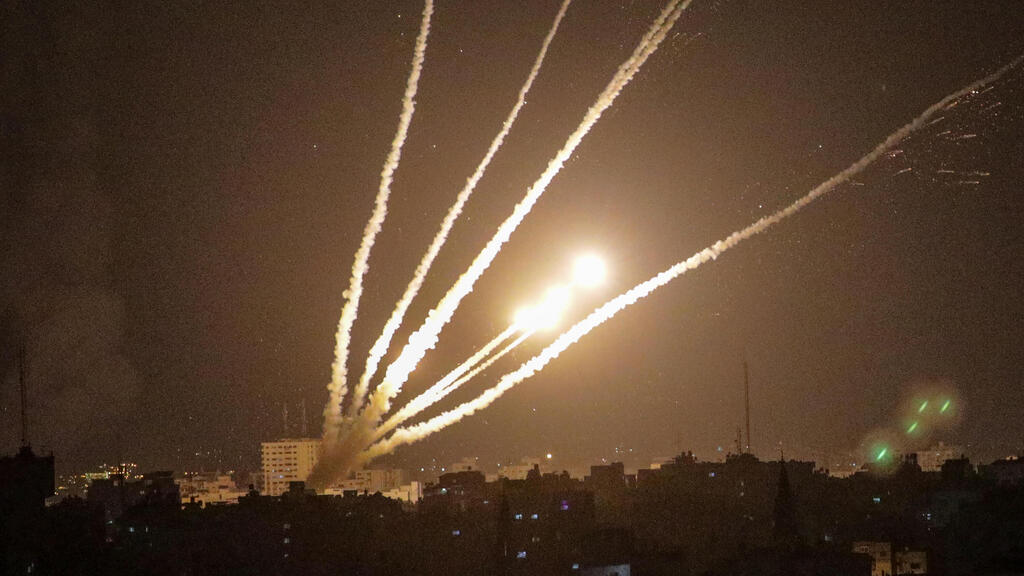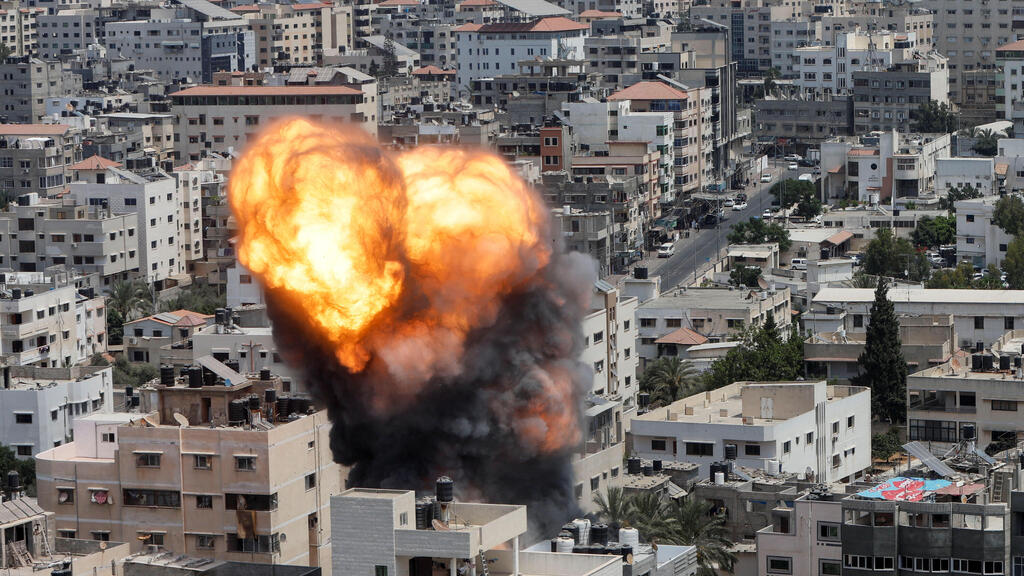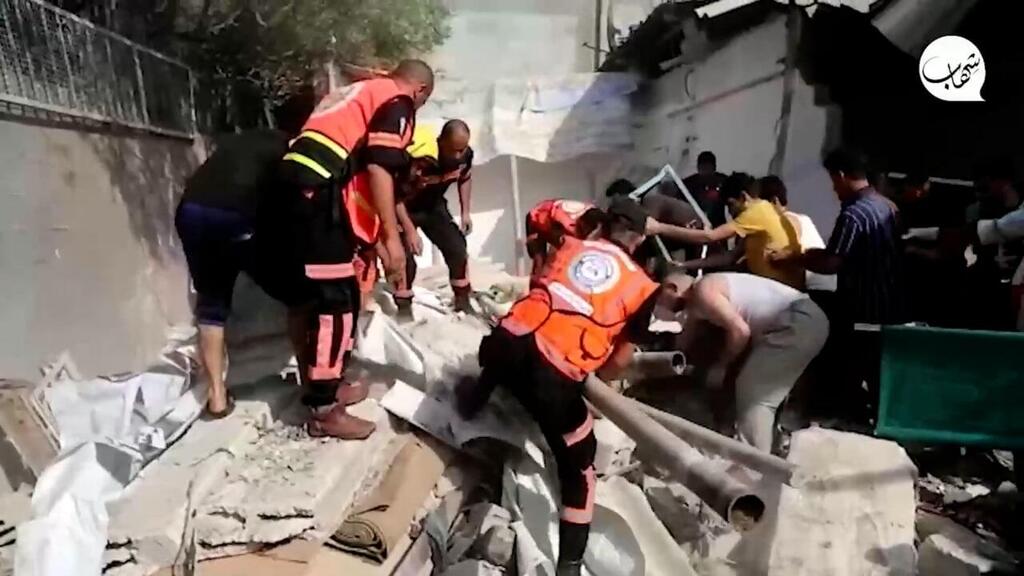As the cleanup in Gaza continues from last weekend's brief conflict with Israel, another battle has continued over which side caused the casualties, after Israel said misfiring rockets from the Palestinian side killed 15 people in the enclave.
According to Israeli military, a fifth of the more than 1,000 rockets fired towards Israel failed, many plunging to earth in Gaza where they caused a third of the 44 deaths recorded there during the 56-hour battle, when Israeli jets pounded the narrow coastal strip.
The Israeli military supplied videos and radar images which it said showed an Islamic Jihad rocket veering off course soon after being launched on Saturday, heading to the ground where they said it killed five people including four children.
Both Hamas, which controls the Gaza Strip, and Islamic Jihad, the Iranian-backed militant group that Israel targeted with its air strikes, denied the those accounts and blamed Israel for all the deaths in Gaza. But an Islamic Jihad spokesman said it was conducting an investigation.
"Israel began the military round and therefore it bears responsibility for all the results of that military round," said spokesman Daoud Shehab.
"We are investigating all the reports and all the cases that are being cited by media outlets," he said. He added that some claims had already been proved incorrect but gave no details.
Footage of alleged Islamic Jihad misfire that claimed civilian casualties in Jabalia, Gaza
(IDF)
Hamas briefly issued an order instructing freelance journalists not to report claims that casualties may have been caused by Palestinian rockets. It soon rescinded that order.
In the Jabalya refugee camp in northern Gaza, damaged cars and buildings left little doubt of the force of the blasts that hit the area for the first time on Saturday, when many people were outside, enjoying the cool of the evening while a power blackout shut off lights and air conditioners.
"Suddenly there was an explosion in the middle of the children and women in the street," said Farid Al-Khatib, whose son was wounded in the blast.
4 View gallery


Wounded taken from the rubble in Jabalia during the 3-days of fighting there
(Photo: AFP)
Both Islamic Jihad and Hamas, which took no part in the weekend fighting, have developed rockets with the help of Iran but they remain relatively crude devices compared with the sophisticated weaponry used by Israel.
Although more than 1,000 were launched towards Israel, most were intercepted by Israel's Iron Dome air defense system and caused no significant damage or casualties.
In all, the Israeli military said at least three failed Islamic Jihad rockets, one in Jabalya, one in Beit Hanoun in northern Gaza and one in al Bureij in central Gaza, killed around 15 people before an Egyptian-brokered truce ended the fighting late on Sunday.
"Their disregard for human life was tragic, as multiple failed rocket launches led to the deaths of innocent Palestinian children in Gaza," Israeli Defense Minister Benny Gantz said.
The U.S. ambassador to the United Nations, Linda Thomas-Greenfield, called for an investigation into civilian casualties and said: "We should refrain from jumping to conclusions until we can determine the facts".
Many people on the ground in Jabalya refused to credit the account by Israel, which they insisted bore responsibility for the deaths.
"The martyrs in Jabalya camp, the catastrophe of Jabalya camp, were caused by the occupation," said Mohammad Al-Nairab, 38, who lost his sons Ahmed, 12 and Moamen, 6, in the blasts.
Others preferred to wait for an investigation.
"I don't know whether it was an Israeli strike. What happened was that a rocket fell and Israeli planes were there in the sky," said Al-Khatib.
"To say it was an Arab rocket, or an Israeli rocket, we don't know," he said. "We can't judge. This has to be done by the relative parties, the international institutions, human rights groups, they need to come here, watch and examine."






